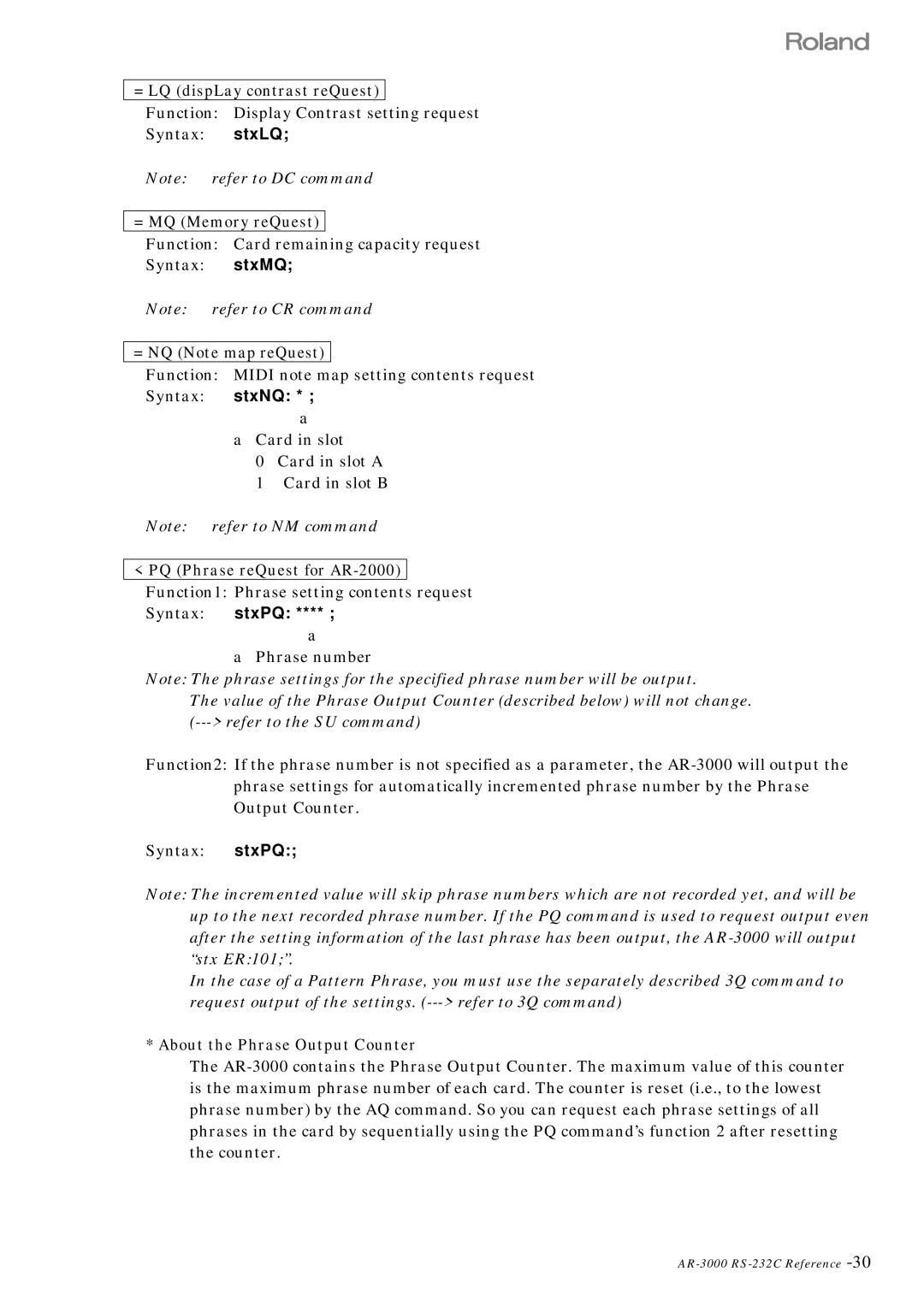
r
= LQ (dispLay contrast reQuest)
Function: Display Contrast setting request
Syntax: stxLQ;
Note: refer to DC command
= MQ (Memory reQuest)
Function: Card remaining capacity request
Syntax: stxMQ;
Note: refer to CR command
= NQ (Note map reQuest)
Function: MIDI note map setting contents request
Syntax: stxNQ: * ; a
aCard in slot
0 Card in slot A
1 Card in slot B
Note: refer to NM command
<PQ (Phrase reQuest for
a
a Phrase number
Note: The phrase settings for the specified phrase number will be output.
The value of the Phrase Output Counter (described below) will not change.
Function2: If the phrase number is not specified as a parameter, the
Syntax: stxPQ:;
Note: The incremented value will skip phrase numbers which are not recorded yet, and will be up to the next recorded phrase number. If the PQ command is used to request output even after the setting information of the last phrase has been output, the
In the case of a Pattern Phrase, you must use the separately described 3Q command to request output of the settings.
* About the Phrase Output Counter
The
